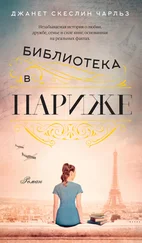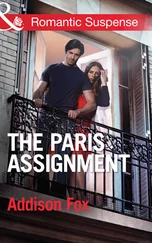I moved to the window and watched him hurry down the street.
Behind me, I heard the glug-glug-glug of Papa pouring a digestif. Sunday lunch was the one time each week that he and Maman indulged themselves in the dark memories of the Great War. After a few sips, she reverently recited names of neighbors who’d been killed, as if each were a bead on her rosary. To Papa, the battles his regiment won seemed like defeats because so many of his fellow soldiers had died.
Rémy joined me at the window, where he picked at Maman’s fern. “We scared off another suitor,” he said.
“You mean Papa did.”
“He drives me mad. He’s so narrow-minded. He has no clue about what’s happening.”
I always sided with Rémy, but this once, I hoped that Papa was right. “Did you mean what you said… about war?”
“I’m afraid so,” he said. “Hard times are coming.”
Hard Times . 823. British literature.
“Civilians are dying in Spain. Jews are being persecuted in Germany,” he continued, frowning at the frond held between his fingers, “and I’m stuck in class.”
“You’re publishing articles that raise awareness about the plight of refugees. You organized a clothing drive for them, and got the whole family involved. I’m proud of you.”
“It’s not enough.”
“Right now, you need to focus on your classes. You were at the top of your class; now you’ll be lucky to graduate.”
“I’m sick of studying theoretical court cases. People need help now . Politicians aren’t acting. I can’t just sit home. Someone has to do something.”
“You need to graduate.”
“A degree won’t make a difference.”
“Papa’s not entirely wrong,” I said gently. “You should finish what you start.”
“I’m trying to tell you—”
“Please tell me you haven’t done anything rash.” He’d donated his savings to a legal fund for refugees. Without telling Maman, he’d given the food in our pantry to the poor, down to the last speck of flour. She and I had rushed to the market to get dinner on the table before Papa arrived home so he wouldn’t find out and scold Rémy.
“You used to understand.” He strode to his room and slammed the door.
I flinched at his accusation. I wanted to yell that he never used to be so impetuous but knew that fighting would lead nowhere. When he calmed down, I would try again. For now, I wanted to forget Papa and Paul and even Rémy. Hard Times . I drew the book from my shelf.
CHAPTER 4
Lily
FROID, MONTANA, JANUARY 1984
DAD AND I hovered at the side of Mom’s hospital bed. She tried to smile, but her mouth just quivered. The color had gone from her lips, and she blinked in slow motion. Around her, machines beeped. Why hadn’t I gone straight home after school? Maybe if I had, Mom wouldn’t be here now.
I closed my eyes and took her away from the bowl of half-eaten green Jell-O, away from the sterile hospital stink, to the lake. Inhaling the marshy scent, she and I tramped around, her face flushed from the warmth of the sun. She noticed something in the grass. Moving closer, we found a copse of Coors cans. She pulled a plastic sack from the pocket of her windbreaker and picked them up. Wanting to just enjoy the moment, I said, “Come on, Mom. Forget the trash,” but she ignored me. It was important for her to leave a place better than we found it.
Dr. Stanchfield brought me back. He’d come to translate the specialist’s diagnosis: the EKG showed that Mom had had several silent heart attacks, which had caused extensive damage. I didn’t know how we’d traveled from Mom insisting she just had trouble catching her breath to heart attacks. It seemed like a long stretch of road with no warning signs, no “Falling Rock,” no “Dangerous Crosswinds.” How did we get here? And how long would Mom have to stay?
FOR SUPPER, DAD heated Salisbury steak frozen dinners and set up TV trays. He said it was so we could watch the news, but I knew it was so that Graham Brewster, the grandfatherly anchor, would do the talking for us. Tonight, he interviewed a member of the Union of Concerned Scientists about what would happen in the event of a nuclear war.
“Is Mom getting better?” I asked Dad.
“I don’t know. She seems less tired.”
More than 225 tons of smoke would spew into the air, said the MIT physicist.
“When will she be home?”
“I wish we knew, hon, but Stanch didn’t say. Real soon, I hope.”
The smoke would black out the sun, triggering an ice age.
“I’m scared.”
“Eat something,” Dad said.
No matter how bad things are now, the scientist concluded, they can always get worse.
I moved the meat around with my fork. My belly had stiffened into a boulder, and it beat long and slow, like a confused heart.
After dinner, Dad disappeared into the den. I twirled the telephone cord around my finger and called Mary Louise. The line was busy. If her sister Angel wasn’t on a date, she was on the phone. I glanced around to make sure Dad wasn’t nearby before dialing 5896. Please let Robby be home. “Hello,” he answered. “Hello? Is anyone there?” I wished I could talk to him but didn’t know how. I eased the receiver onto the cradle but didn’t let go right away—his voice, deep and velvety, made me feel less lonesome.
At my bedroom window, I stared up at the full moon. It stared back. The wind snatched at the brittle branches. When I was little and scared of a storm, Mom had pretended that my bed was a boat and that the gusts were waves, the sea slicing to and fro over our lawn, taking us to a faraway land. Without her, the wind was just the wind, howling past on its way to somewhere better.
TEN DAYS LATER, when Mom came home, she sank onto the bed. Dad prepared a cup of chamomile tea. I lay beside her under the lemon-yellow afghan. She smelled of Ivory soap. Icicles dangled from the roof. Snow tight-roped the telephone lines. The big sky was blue, our world white.
“We’re lucky today.” She gestured toward the window. “Plenty of hawks.”
Sometimes they glided high over the pasture across the street. Sometimes they flew low, searching for mice. Mom said bird-watching was better than TV.
“When I was pregnant, your dad and I cuddled on the window seat and watched robins. I loved their bright breasts, a sure sign of spring, but he didn’t like the way they slurped down worms. ‘Think of it as spaghetti,’ I told him.”
“Ew!”
“You were almost a Robin. After you were born, I told the nurse that was your name, though I knew your dad preferred Lily, because lily of the valley was in bloom when we bought the house. Then I saw you with him, your fingers clasped around his pinkie. They reminded me of the tiny flowers. He leaned down and kissed your belly. The way he looked at you… with such love—I changed my mind.” She told the story often, but today for some reason, she added: “When Dad works, it’s not for himself. He wants us to feel secure. He was poor growing up. Deep down, he’s scared he could lose everything. Do you understand?”
“Kind of.”
“People are awkward, they don’t always know what to do or say. Don’t hold it against them. You never know what’s in their hearts.”
People are awkward. Don’t hold it against them. You never know what’s in their hearts. What did she mean? Something about herself? Or Dad? I heard Mary Louise’s mom say that my dad took himself for a Wall Street stockbroker and that he liked money more than people.
“Dad’s gone an awful lot,” I said.
“Oh, honey, what a pity that babies don’t have memories of how they were cherished. Your dad held you all night long.”
He was an eagle, she said, calm and brave. I’d learned about eagles—both the male and female take turns sitting on the eggs.
Читать дальше
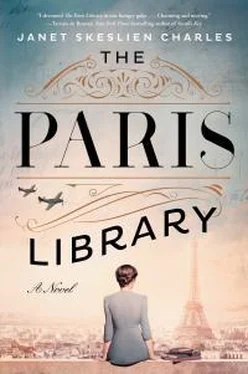
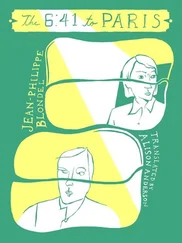
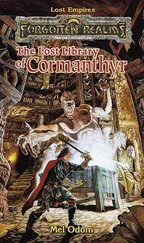
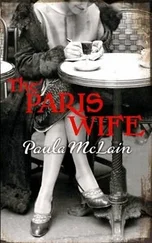


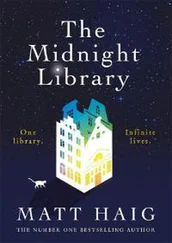
![Джанет Скеслин Чарльз - Библиотека в Париже [litres]](/books/391555/dzhanet-skeslin-charlz-biblioteka-v-parizhe-litres-thumb.webp)
